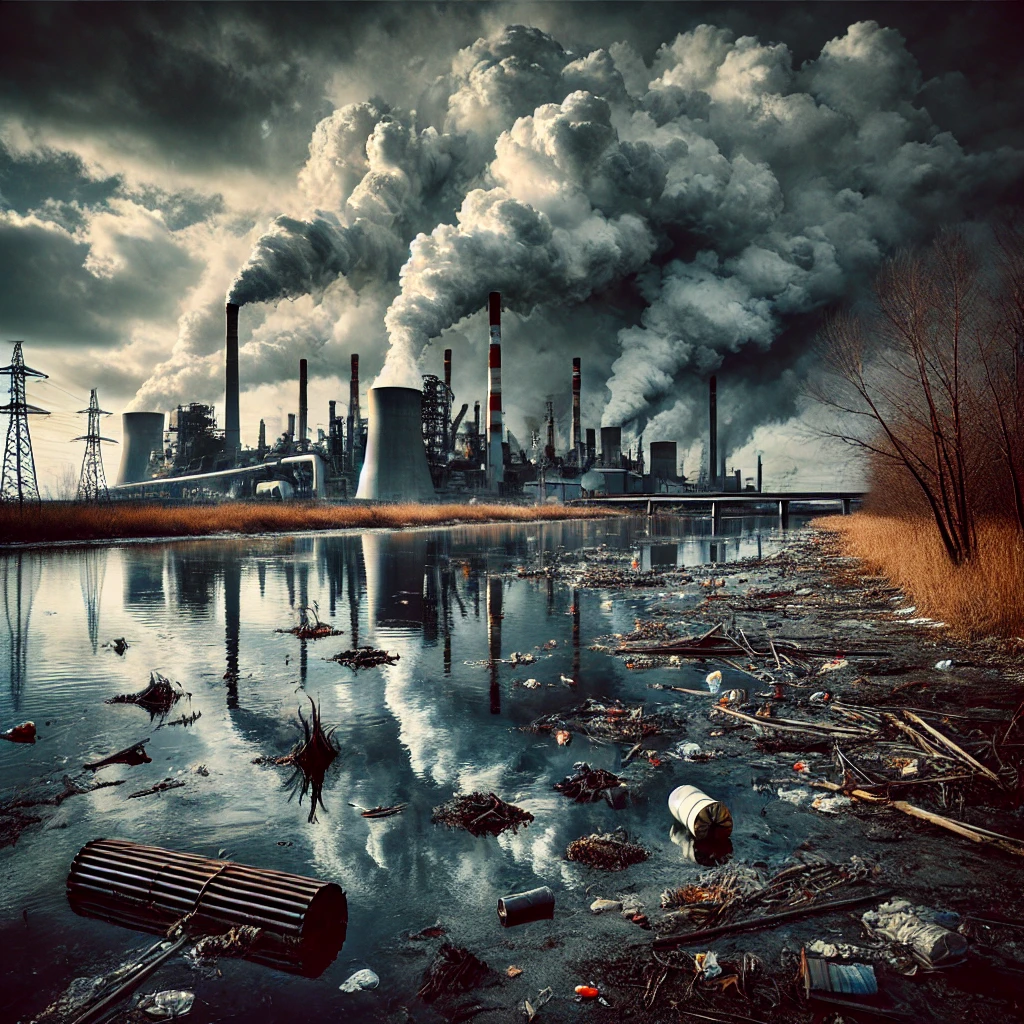What is the industrial pollution?
Article Source: The Industrial Pollution Handbook

Why you should care
Industrial pollution affects every part of our environment, from the air we breathe to the water we drink. Factories and manufacturing plants release harmful substances into the environment, contributing to health issues, global warming, and ecosystem damage. Understanding industrial pollution helps us realize the scale of the problem and why it’s crucial to advocate for cleaner practices.
Answering the question… What is industrial pollution?
Industrial pollution occurs when factories and manufacturing plants release waste and pollutants into the air, water, and soil. These pollutants include carbon dioxide, heavy metals, and chemical byproducts, which can harm human health and ecosystems. Each year, industries contribute to over 50% of air pollution and 20% of water pollution globally, highlighting the significant impact of industrial activities on the environment.
How was the study done?
Researchers analyzed pollution levels from various industries, examining emissions, waste disposal methods, and the environmental effects of different pollutants. The study involved air and water sampling, soil testing, and reviewing data from pollution control organizations to understand the sources and spread of industrial pollution.
What was discovered?
- Air pollution: Factories contribute to around 50% of air pollution, releasing CO₂, sulfur dioxide, and nitrogen oxides, all linked to respiratory issues and climate change.
- Water pollution: Industrial facilities discharge 300–400 million tons of waste into water bodies each year, often contaminating local water supplies.
- Soil contamination: Heavy metals from manufacturing processes leach into the soil, affecting agriculture and leading to long-term ecosystem damage.
- Human health: Proximity to industrial sites is linked to higher rates of asthma, cancer, and other health conditions due to toxic exposure.
- Climate impact: Industrial pollution is a major contributor to global warming, as it accounts for about 21% of total greenhouse gas emissions worldwide.
Why does it matter?
The impact of industrial pollution is widespread, affecting the health of humans, animals, and plants. Reducing industrial pollution can improve public health, mitigate climate change, and protect ecosystems. By implementing stricter regulations and adopting cleaner technologies, industries can reduce their environmental footprint, paving the way for a healthier and more sustainable planet.
